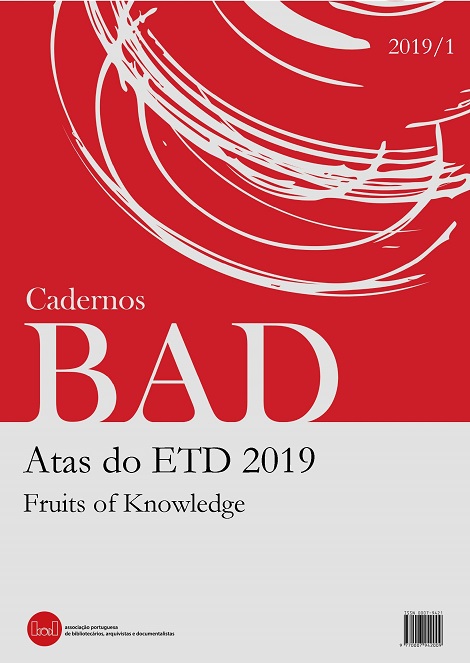Use of Turnitin and Urkund anti-plagiarism software tools for plagiarism detection/similarity checks to the Doctoral theses: Indian experience
DOI:
https://doi.org/10.48798/cadernosbad.2042Keywords:
Anti-plagiarism software, Turnitin, Urkund, Plagiarism detection, Doctoral Theses, IndiaAbstract
India is one of the massive higher education systems in the world. The doctoral research output plays a significant role as it is a primitive source and blueprint of research also growing fast pace it has a 24% increase in doctoral degree compare to the previous year. Anti-plagiarism software screening to theses text is boon to Indian universities and first instances it is preserving from copy verbatim the doctoral theses particularly in English against 234592 online theses in Shodhgang repository. But scanning of doctoral theses detecting plagiarism in Indian regional languages not completing effectively the cause is oblivious Indian language scripts not covered in software. Software tools adopted for the plagiarism/ similarity check it showed the diverse results of the similarity index for the same text of doctoral theses. Moreover, the court has observed that human judgment is needed to determine the copying rather than considering the software-generated report are the major issues in the present scenario.
Downloads
Downloads
Published
How to Cite
Issue
Section
License
Os autores que publicam nos Cadernos BAD:
- Concedem à revista o direito de primeira publicação, mantendo os direitos de autor, de acordo com os termos da Creative Commons Attribution, que permite a partilha do texto com menção obrigatória da publicação inicial nos Cadernos BAD;
- Mantêm o direito de publicar o texto noutros locais (ex.: repositório institucional, capítulo de livro, outra publicação periódica), com menção da publicação inicial nos Cadernos BAD e uma ligação para o sítio na Internet da revista;
- Mantêm a possibilidade e são mesmo incentivados a publicar e distribuir o seu trabalho online (ex.: em repositórios institucionais ou na sua página pessoal) antes ou durante o processo editorial, já que isso pode potenciar interações geradoras de melhoria, bem como aumentar o impacto e a citação do texto publicado (Veja Efeitos do Acesso Livre).


